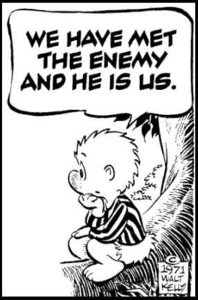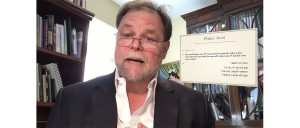Profoundly important words capture what so many of us felt on our recent trip to Israel.
Thank you, rabbi, for sharing this complexity with such clarity.
Profoundly important words capture what so many of us felt on our recent trip to Israel.
Thank you, rabbi, for sharing this complexity with such clarity.
Our cohort is thinning. We watch as icons, friends, and family of our generation die. So many of us have already lost our parents, and our grandparents have been consigned to our memories for years.

It is a natural process but a sobering one. Our days may still be many, but the time ahead of us is far shorter than the time we have already lived.
We are of a particular generation, us boomers. We who live on reflect on our mortality and what our lives will mean to those who will continue after we are gone.
A friend of mine used to joke that he read the obituary first thing in the paper, and if he didn’t see his name, he knew it would be a good day. Gallows humor perhaps, but now is the time to ensure the gift that is the remainder of our lives is lived well. What do we have yet to accomplish? Have we been faithful to our ideals, and what amends must we make for the times we did not?
What will we leave behind to those we love? Will they remember us as unique parts of their lives, filled with experiences of beautiful times together? Now is the time to reach out to them and make our time together memorable- it is a gift for us both.
Tyre Nichols is buried today. So many of us grieve and shake our heads in disbelief, wondering how this could happen. 
Several people are identified as directly responsible for the brutality leading to Tyre Nichols’s death, including police and EMTs. Ironically, those charged with protecting us are accused of the murder of someone when they betrayed their sacred oaths. But we cannot stop here, assuaging our sense of moral outrage by prosecuting bad actors. Something more insidious is going on, and we must do much more.
Some of us remember the political cartoon Pogo by Walt Kelly. One iconic image is Pogo contemplating the situation saying, we have met the enemy, and he is us. Set initially as an environmental statement in 1971, this understanding of the situation applies to us today. 
We may not be directly guilty of the barbarism that took Mr. Nichols’s life, but we have allowed it to exist. We have turned a blind eye to a systemic problem, and Mr. Nichols and many others have paid the price.
Law enforcement ostensibly is tasked with protecting the people from those criminals who prey upon us. It is a tough job and often a thankless one. It is hard and often very unpleasant, so many of us prefer to turn away and let them do what they need to do. But we cannot turn a blind eye any longer.
In a free society, some are guilty all are responsible. These words were written in 1972 by Abraham Joshua Heschel. And they remain true today. We are responsible. Only when we engage in the difficult conversations and hard choices involving what policing looks like and what are the responsibilities of those tasked with protecting all of us; do we give them the resources they require, including the best personnel, the best training, and the tools, a social security apparatus that supports those whose needs are best met by other professionals and the active, meaningful oversight by responsible civilians and the courts will we achieve the justice we seek, the justice denied Mr. Nichols.
As we lay Tyre Nichols to rest, let us finally commit ourselves to fix a broken system so that America can be America for all Americans.
We often forget or become numb to how commonplace the daily carnage has become.
And because of our numbness, we require a mass casualty event to jolt our senses and awareness.
Sadly, this means that the lives of all the individuals murdered go unnoticed. The tragic loss of children becomes part of the daily process, cold statistics not unlike the cold bodies left in the wake of this national nightmare.
We must accept that although many consider shooting a sport (hunting, target practice, etc.), the purpose of a gun is to serve as a deadly weapon. A gun is used to kill. And outside the hunter’s blind or shooting range, most guns ultimately aim at people, and people die.
There are many reasons for the prevalence of guns and the ensuing gun violence. But at its core is a fundamental rejection of a basic premise of our society, namely, we are a nation of laws. If those laws are not applied rigorously and uniformly, then grievance arises, and the need to take the law into our own hands ensues.
The mass shooters and street thugs flout the law, and the victims ultimately pay the price of a society unable or unwilling to abide by its own standards of civility.
Taking the guns off the streets is a fantasy or perhaps just a fool’s errand. Only when we fully commit to a holistic approach that requires defending the weak and addressing the issues underlying the reasons people turn to guns, including mental health, lax enforcement of the law, political expediency, and twisting the Second Amendment to paralyze serious conversations, might we as a society begin the process of confronting and vanquishing this scourge.
As the co-chair of the Domestic Affairs Committee of the JCRC of Greater Philadelphia, we are committing ourselves to the issue of Gun Responsibility within the greater context of a Safe Cities Initiative. Our safe city approach is complex and challenging and without a quick fix. But the longer-term payoffs are significant. So I hope we can galvanize our community to engage in this hard work on behalf of all of us.
approach is complex and challenging and without a quick fix. But the longer-term payoffs are significant. So I hope we can galvanize our community to engage in this hard work on behalf of all of us.
As we welcome Shabbat, Hanukkah comes immediately after on the 18th. Six13, the outstanding a capella group shares “Elton Johnukah.” Take a listen and enjoy the music and the joy.
Shabbat Shalom
(PS shout out to Jeff and Ilene for sharing this video with me so I can share it here)
Many have called upon Donald Trump to apologize for embracing two avowed Jew Haters.
Trump has not distanced himself from these bigots or their bile.
Trump is a clever checkers player who has acted according to what he believes is best for him. For us now to receive an explanation or apology after so much time has elapsed would be suspicious at best. It is impossible to believe any apology would be sincere and instead a cynical calculation for personal benefit.
One of the best ways to put out a fire is to eliminate the oxygen from which it is nurtured. Let us deprive this dumpster fire of any further oxygen/publicity so we might focus on issues of importance, including repairing the damage he has incited, stoking hatred, violence, and contempt for the institutions that undergird our nation.
There is nothing like the threat of economic consequences to elicit a heartfelt apology.
Yes, that is as cynical as it sounds. The recent antisemitic bile spewed from Kanye West and Kyrie Irving has met with pushback and outrage from the Jewish Community and severe fallout in the business community. And voila, apologies have started to cascade out. But writer/activist George M. Johnson pointedly shared in a recent interview that West had been spewing hatred against the Black community for a while before turning his sights on the Jews. That, however, did not provoke the same level of outrage from either Jews or businesses. This is for reasons ranging from racism to the idea that such vile thoughts didn’t hurt anyone’s bottom line enough.
We all need to do better.
We all must enjoy the same rights and responsibilities in our society; that hatred against one group threatens everyone. Businesses are rarely the bastions of moral virtue. But businesses will respond when we inflict economic consequences on bad behavior, such as not going to Nets games or buying West’s sneakers or clothing, because hatred directed at any group is unacceptable to all of us. This is a call to all who find themselves in a group that has been “othered” in our society and those who enjoy the privilege of not being so ostracized. Jews need to speak for the civil rights of all people, not just Jews. Blacks likewise need to talk about injustice whenever it happens in our society, not just when Black people are affected. And so too with everyone. To echo Langston Hughes, Let America be America for all Americans.
Some hate for hate’s sake and believe we live in a zero-sum game where a gain by me is at your expense. This is patently false. A gain by me in the areas of justice and civil rights is a gain for all of us. We measure the strength of our society not by the will of the stronger but by our ability to protect the vulnerable and give voice to the otherwise unheard and exploited.
I did not have much use for Kanye West before these recent rantings, and I have none now. Irving’s comments are likewise repugnant. And I do not need to patronize brands that undermine the “arc of justice” to which we as Americans should aspire. I support the right to free speech even when it contradicts my values. But words have consequences; Hate speech leads to violence and injustice. That is un-American, where all of us are called to draw the line.
This coming year, may each of us strive to be just a little better- loving and kinder- to each other and to ourselves.
This beautiful message from Central Synagogue in New York is a wonderful way to welcome Shabbat
Shabbat Shalom
Parshat Devarim